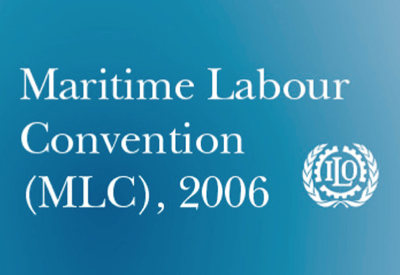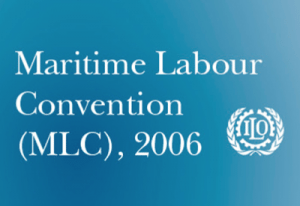Was The World’s ‘Northern-Most Island’ Erased From Charts?
by Kevin Hamilton (University of Hawaii) In 2021, an expedition off the icy northern Greenland coast spotted what appeared to be a previously uncharted island. It was small and gravelly,...




Just weeks before the August 20th implementation of the sweeping Maritime Labor Convention (MLC 2006) from the International Labor Organization, the United States Coast Guard finally provides guidance to U.S. flag vessels in international trade.
U.S. shipping companies have been scrambling during the previous months to ensure that their vessels are not detained while on foreign voyages and calling in countries that have ratified the MLC 2006. Navigation and Vessel Inspection Circular (NVIC) 02-13, “GUIDANCE IMPLEMENTING THE MARITIME LABOUR CONVENTION, 2006,” is intended to provide guidance for Coast Guard marine inspectors, Recognized Classification Societies (RCS) that are authorized to issue international convention certificates on behalf of the Coast Guard, and U.S. vessel owners/operators on the U.S. laws and regulations, or other measures, conforming to the MLC 2006.
While the majority of U.S. vessels affected by this convention are fully compliant through existing U.S. laws, port state control (PSC) officers could easily detain them in foreign ports as the convention states they must, “…ensure that the ships that fly the flag of any State that has not ratified this Convention do not receive more favorable treatment than the ships that fly the flag of any State that has ratified it.”
The implementation of a convention of this magnitude is not without its well-meaning, but possibly misguided attempts to enforce it. In order to remove some of the mystery, the International Chamber of Shipping has issued, “GUIDANCE FOR SHIP OPERATORS ON PORT STATE CONTROL AS FROM 20 AUGUST 2013.” This pamphlet includes an overview of the enforcement procedures and methods of complying with the convention. It also (on page 5) discusses three remedies that may be available in the event of PSC difficulties.
A major container ship company recently commented that the difference between profit and unprofitability might be as simple as a detained vessel. With charter and daily operating costs running into the tens of thousands of dollars, avoiding any detentions based on MLC 2006 issues will be key. To that end, a review of the ILO “Guidelines for port State control officers carrying out inspections under the Maritime Labour Convention, 2006” may keep you, your ship or your company out of hot water.
Captain Richard Madden is an actively sailing SUNY Maritime graduate with over 20 years of industry experience. He writes regularly on maritime safety and regulatory
Join the gCaptain Club for curated content, insider opinions, and vibrant community discussions.


Join the 105,936 members that receive our newsletter.
Have a news tip? Let us know.
Access exclusive insights, engage in vibrant discussions, and gain perspectives from our CEO.
Sign Up




Maritime and offshore news trusted by our 105,936 members delivered daily straight to your inbox.



Essential news coupled with the finest maritime content sourced from across the globe.
Sign Up